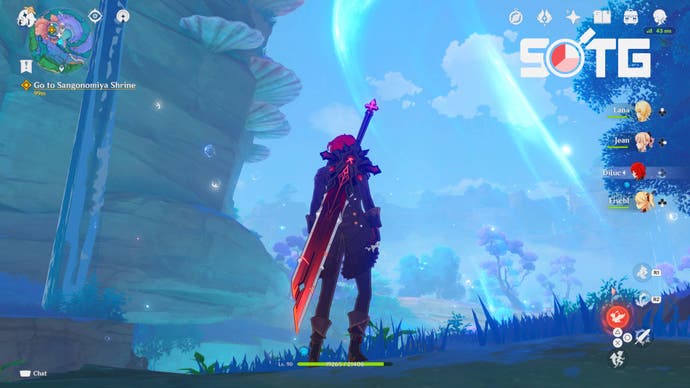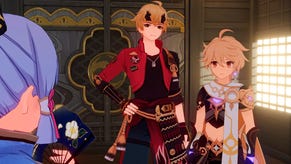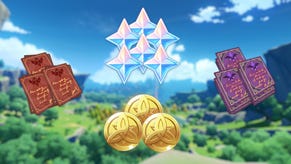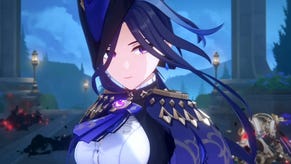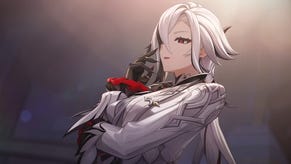State of the Game: Genshin Impact - an anime open world not done with expanding
Banner saga.
At the start, it was easy for critics to write off Genshin Impact as a shameless Breath of the Wild clone from a country with a reputation for knock-offs. Even when it did gain a following to everyone's surprise, coverage also had a hand-wringing focus on its gacha mechanics. But defying expectations, the free-to-play open world action RPG has gone from strength to strength, raking over $2 billion in its first year of launch on mobile alone, and becoming the most talked about game on Twitter in 2021. Its crossover success to Western markets has established developer miHoYo (or HoYoverse, as it's internationally rebranded itself these days) as a vanguard of the Chinese new wave in big budget game development.
Gone are the days of hearing people refer to this game by its dismissive nickname Breath of the Waifu. Now, people are searching for Genshin-likes instead (and Diluc and Zhongli mains can attest the game has its share of husbandos too). But with an estimated 500+ hours already invested, almost a dozen maxed characters and still so much more to do, it's hard for me to want to play anything else. This is especially true as we approach the 3.0 update, which aims to not only introduce the new tropic-and-desert region of Sumeru but also a new element, Dendro, to mix up combat.
But what about the uninitiated looking to drop into the fantasy world of Teyvat for the first time? At first, Genshin Impact may feel like another victim of feature creep, with updates that have added a city reputation system, your own Animal Crossing-style island getaway, and even a dating sim mini-game with some of its delectable cast. Fortunately, these features gradually unlock as you play and increase your adventure rank, so as not to overwhelm you off the bat. For the first 15-20 hours, you can treat it as an old-fashioned single-player action RPG as you play a mysterious traveller on a quest to find your missing sibling, before getting caught up in a crisis involving a dragon gone berserk.
It's these opening hours that quickly dispel associations with Nintendo's masterpiece, even if you can glide around its huge open world and can climb just about anything, albeit without rain to deter you. Where it lacks in sandbox physics, though, it more than makes up for it with its delicious elemental combat system, which takes the tried-and-tested rock-paper-scissor RPG formula then spices it up by chucking multiple elements together. Pyro attacks, for instance, are effective against Cryo enemies, while also burning up wooden shields. Add a gust of Ameno, though, and you'll intensify and spread those flames, while wet enemies can be frozen with Cryo or zapped by Electro attacks.
Experimenting with these combinations is what makes combat a constant spectacle. It's especially delightful switching characters to chain into another elemental combo in lightning succession, something you don't have the same control over when you're depending on other players online. That of course depends on whether you do have a party covering all the bases and elements you want, which you can only acquire by making Wishes via the game's gacha system.
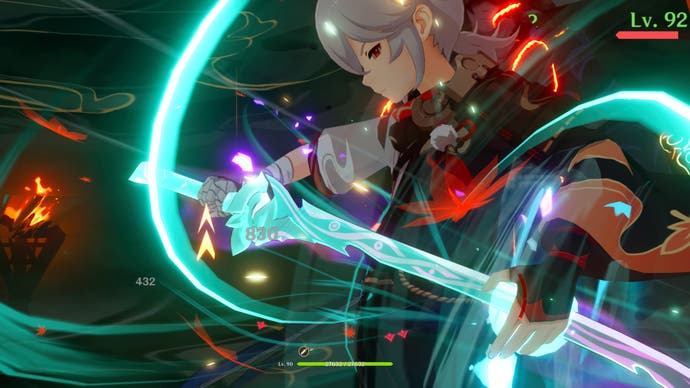
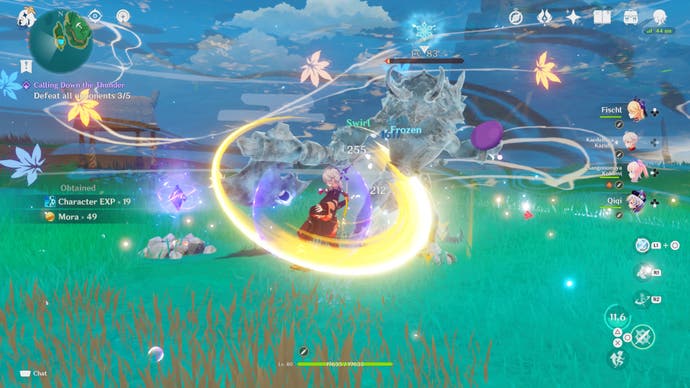
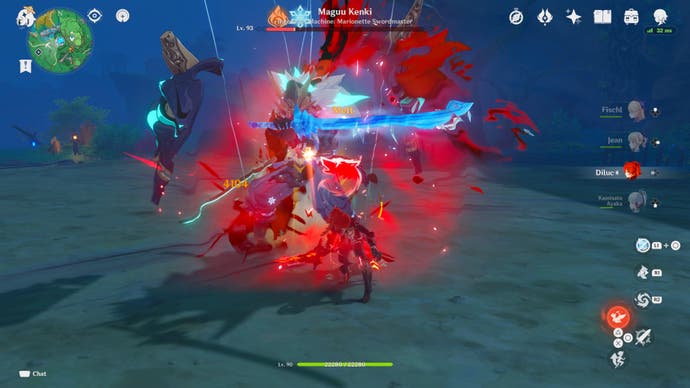
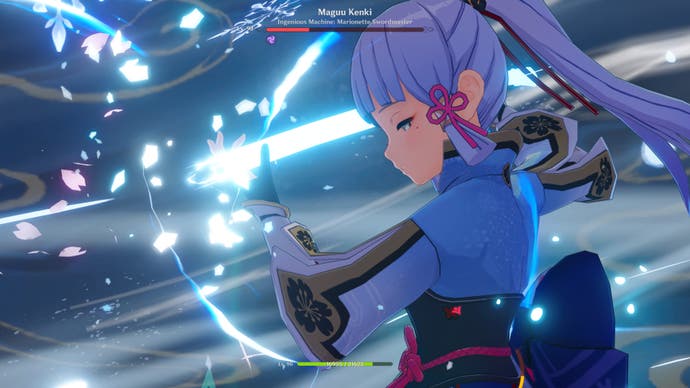
The odds of unlocking the rare five-star character of your choice are not exactly high (0.6 percent to be exact, although this actually fluctuates too when you're making consecutive pulls), but opting to save up Primogems (the game's premium currency) to make 10 wishes in one go at least puts the pity system into play, so you're guaranteed at least a 4-star character or weapon, and you shouldn't dismiss these either. There are treats here, such as Hydro healing songstress Barbara or the delightfully kooky Electro archer Fischl.
Still, it's the event banners that garner the most attention, since they usually introduce a new headline five-star character that players have been hyped about for weeks in advance (sometimes months, given the community's continuous efforts to leak any morsel of information) and then only run for three weeks. This leaves you a comparatively short window to either grind out as much Primogems as you can in-game or crack open your wallet.
This will of course depend on the mentality of the individual player, and not all microtransactions are necessarily predatory or cynical cash-grabs. Almost two years in, I've still not been tempted to spend any real money on making Wishes, while still amassing a pretty fine roster of five-star heroes. There's just so many ways to earn the Primogems required to make a Wish, from short daily commissions to completing story quests, as well as regular events with different kinds of challenges, where Primogems are almost always the first available reward. (This is good for players who don't have the time to complete every single challenge in a time-limited event.)
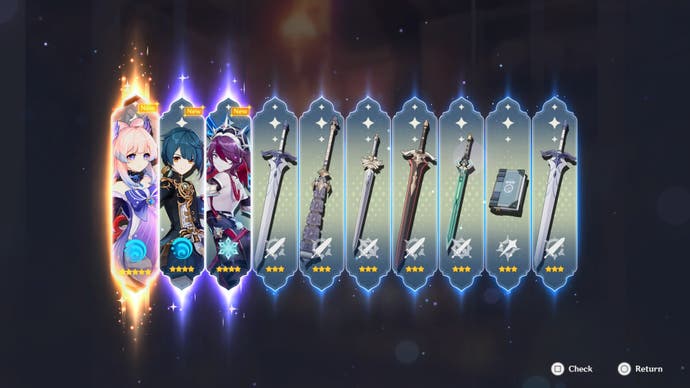
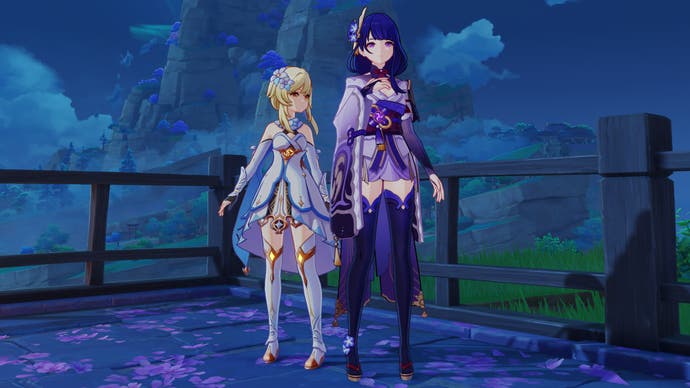
That said, accumulating materials and resources are all vital in Genshin Impact's overall loop as once you've unlocked your dream character, you've still got to level them up before they're viable. While some of this grind had attracted backlash - since most rewards can only be reaped by spending Resin, which slowly replenishes each day or automatically refills by spending money - I find that it has merit.
For one, unlike the stamina bar of mobile games, Resin doesn't lock you out of other in-game activities. Instead the caps are less about cynically milking money from you and more about preventing the gameplay from devolving into a joyless grind. You see that same thought process also applied to gathering materials or mining ore in the world, with even lengthier respawn times that can't be sped up with cash at all. Even the time-limited events stagger the releases of their challenges, all encouraging the idea of playing in moderation, something perhaps other open world developers could learn from. Instead of being paralysed by choice every time I log on, in about an hour, I can do a quick spot of mining, the quick daily commissions, maybe run an event challenge, or spend Resin on specific challenges for levelling up my newly unlocked character, and still have time left over to continue another part of the game's story.
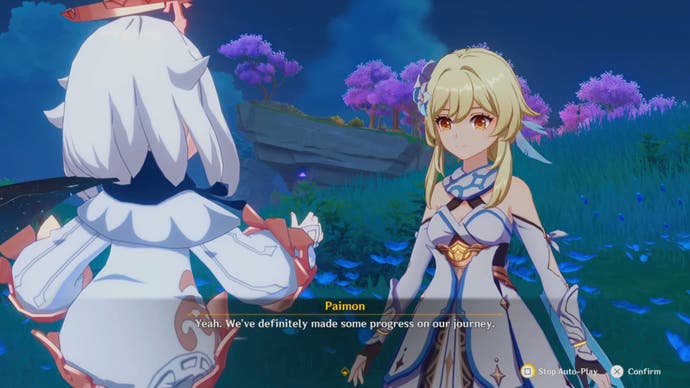
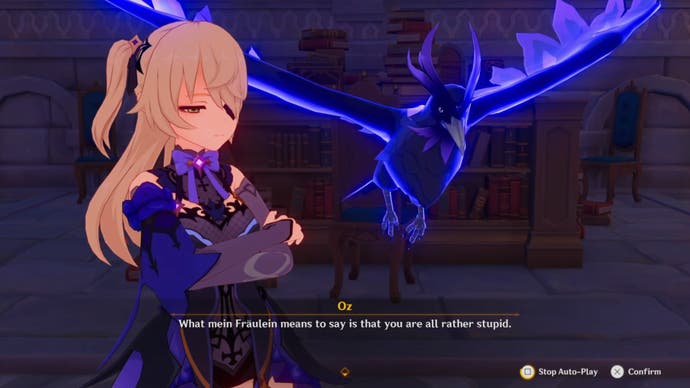
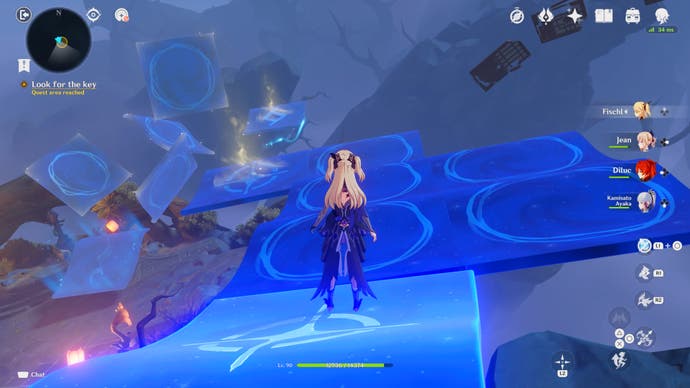
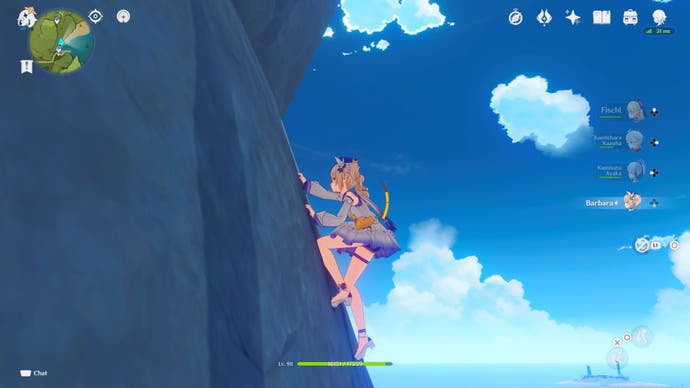
While there's much charm in each of the 40+ and growing roster, and a strong desire to add them all to your collection, they're not always served well by the story, which is often told with a bit too much expositional dialogue while you also quickly notice the lack of attention in lip-syncing. Certainly, the community will have some earnestly engaged in the lore about Archons, Adepti, and the Fatui, though more often than not they're complaining over bugginess of certain five-star characters, which is fair if you've actually shelled out for the chance to get them.
But even if the priority is less "what's going to happen next" and more "what can I do next," there's nonetheless some concern over how swiftly swathes of time-limited content is discarded. It's nowhere near as egregious as Bungie removing old Destiny 2 campaign content that people paid for, but when you consider that many of these events have their own unique mechanics - and just how regularly the devs are creating these throughout the year - to then have them only be around for a few weeks before being unceremoniously discarded seems an incredible shame. It's even more of a loss when they contain some interesting character backstories, notably Fischl's in this summer's current Golden Apple Archipelago event, which any latecomers won't get to experience beyond watching YouTube guides.
I suspect it's a problem that miHoYo will work out eventually, but in the meantime the developer is already continuously busy, either with designing new banner characters or another event. Genshin Impact even beat Elden Ring to the punch by expanding its open world below ground. The studio, meanwhile, is also gearing up to bring not one but two other games to its HoYoverse, the turn-based Honkai: Star Rail and the post-apocalyptic Zenless Zone Zero. Time will tell whether these will strike lightning or jackpot in the same way as Genshin Impact's charming and breezy open world, without the risk of cannibalising its audience's attention. For now though, I'm quite content with roaming Teyvat for another 500 hours. Sumeru can't come soon enough.
This piece is part of our State of the Game series, where we check in on some of the biggest service games running to see how they're getting on. You can find plenty more pieces like it in our State of the Game hub.
